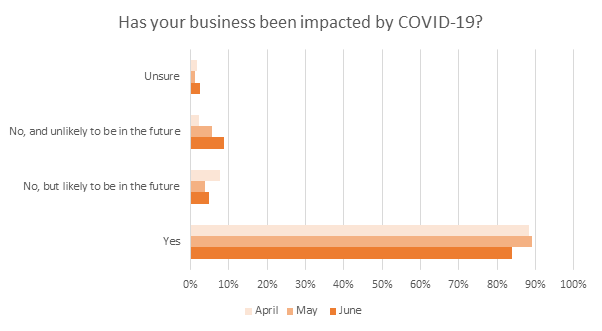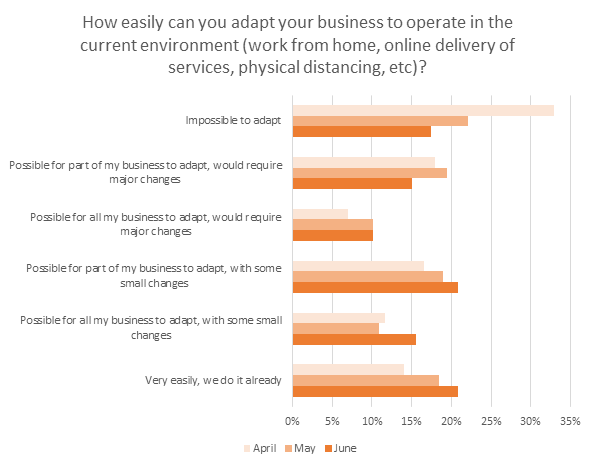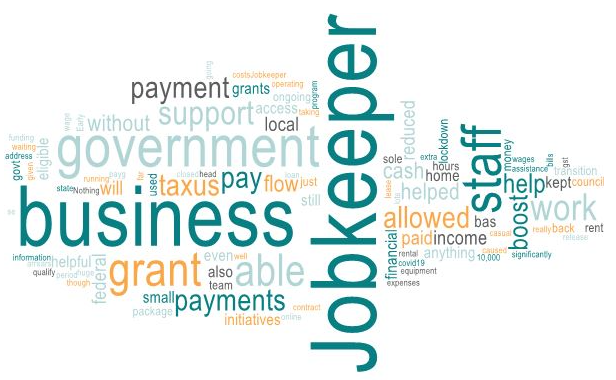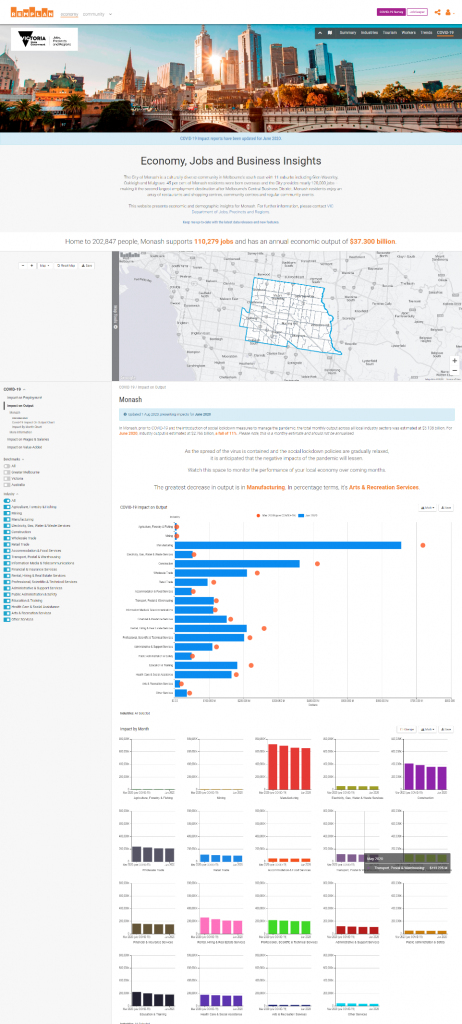24 Aug COVID-19 Economic Impact Analysis – June Update
COVID-19 continues to have a significant impact on our national economy. Physical distancing policies, travel restrictions and general uncertainty have all contributed to some of the most severe changes to economic activity that we have seen for many decades.
Since the onset of the pandemic, the Australian Business Economic Impact Survey (ABEIS) has continued to provide valuable insights into the performance of businesses. The current crisis has had varying impacts on revenue across different industry sectors and regions. Every region’s economy is unique. Not only does every region’s economy have its own unique composition of employment across industries, there are also unique combinations of occupations within industries, unique industry supply chains, and patterns of household consumption.
Other insights and observations include generally lower employment impacts, relative to turnover. This is likely to be a reflection of JobKeeper support and other government assistance programs, combined with businesses forgoing short-term profits in order to retain staff.
The ABEIS has also captured insights regarding how businesses are responding and adapting.
The overwhelming majority of survey respondents continue to indicate that their businesses have been impacted by COVID-19. However, month-to-month responses to June 2020 show a growing proportion of respondents indicating that their businesses have not been impacted and will be unlikely to be in the future.

There has also been a noticeable change in respondents’ perceived ability to adapt to new operating environments. In April, a third of all respondents indicated that it would be impossible to adapt their business. This reduced in May and again in June when only 17.5% of respondents from across Australia indicated that they would be unable to adapt to new requirements.

When asked about what government support has been most helpful, the JobKeeper scheme continues to be the most common keyword. PAYG tax credits and small business grants were other schemes commonly referred to. However, many sole traders have indicated receiving no support due to ineligibility for various schemes.
June’s Responses

REMPLAN’s COVID-19 Economic Impact Analysis, June 2020 update is now available. Access the analysis via:
Public-access REMPLAN Economy Profiles
See the City of Monash example below
Client-access REMPLAN Economy Software
https://login.remplan.com.au/economy/
In coming weeks, we will release the impact analysis for July, and then August which will reflect the introduction of Stage 4 lockdown restrictions in Victoria, and the changing policy settings across all respective states and territories.
As mentioned above, the Australian Business Economic Impact Survey (ABEIS) is providing valuable insights into the business and economic implications of COVID-19 and the associated policies to manage the health crisis.
The ABEIS remains open and is available for businesses across the country to provide their valuable insights into how the COVID-19 pandemic is affecting their operations. REMPLAN will continue to administer the survey, providing regular updates on results to date.
Please consider encouraging businesses in your region to respond to the ABEIS, even if you have done so previously.
https://surveys.remplan.com.au/s3/REMPLAN-COVID-19-ABEIS
The more we can understand the local impacts, the better placed we will all be to take targeted, strategic actions to support local workers, businesses and economies.
Let’s talk: 1300 737 443
Kind regards
The REMPLAN team
Related topic: JobKeeper Local Government Area analysis





No Comments